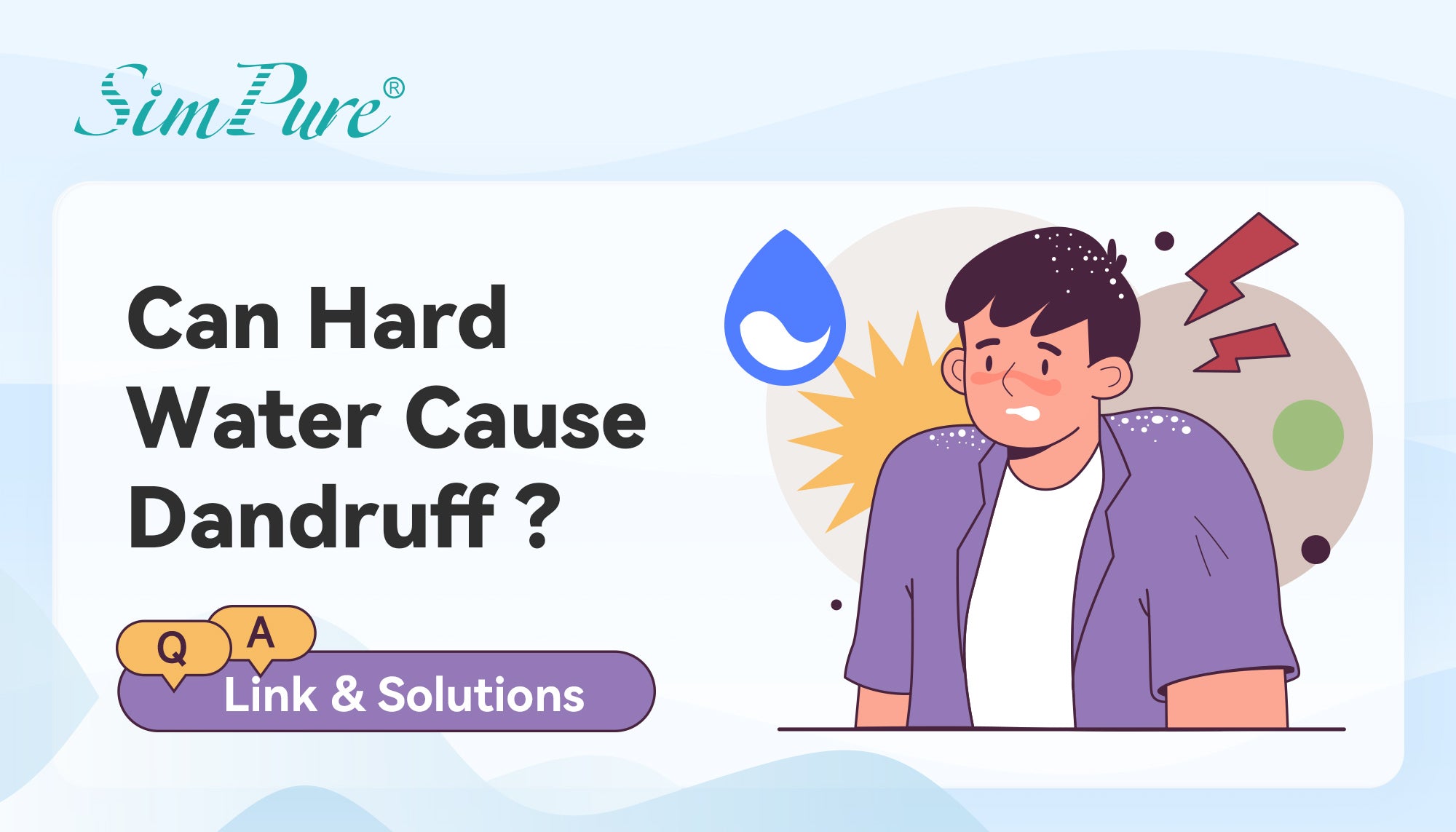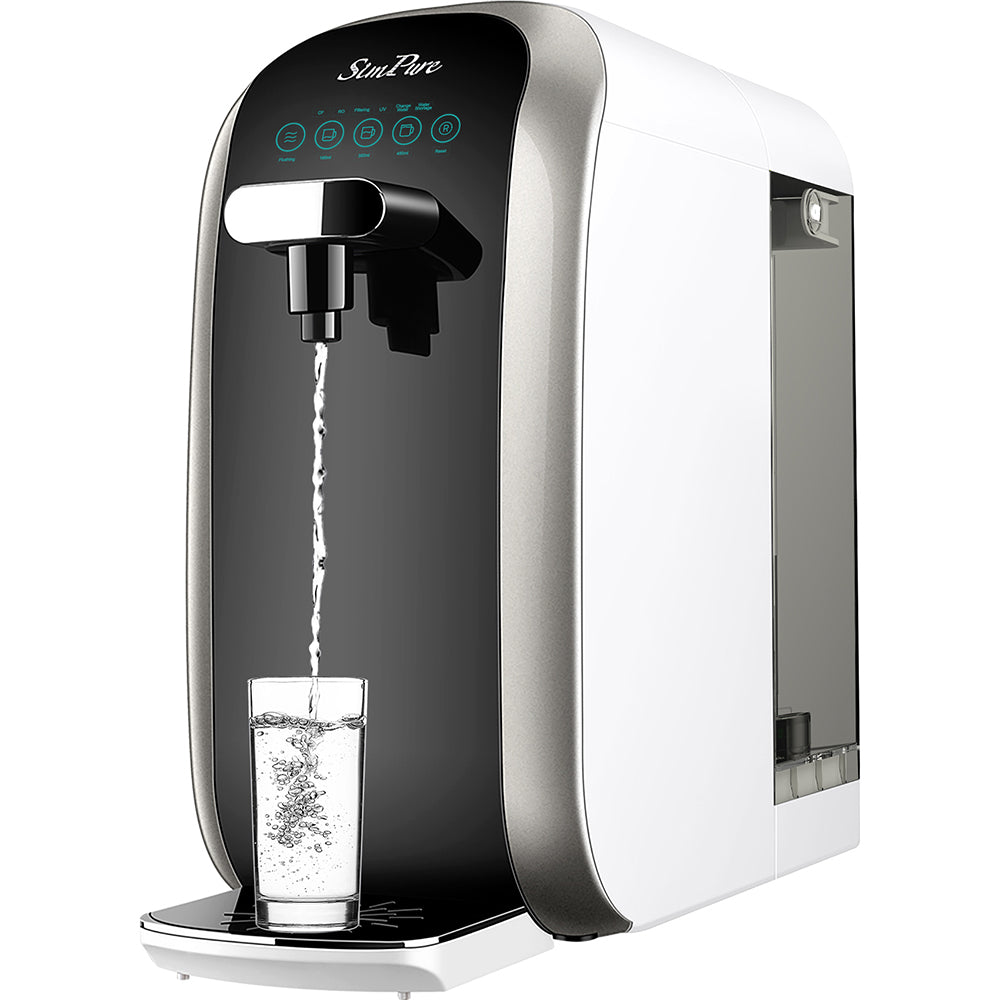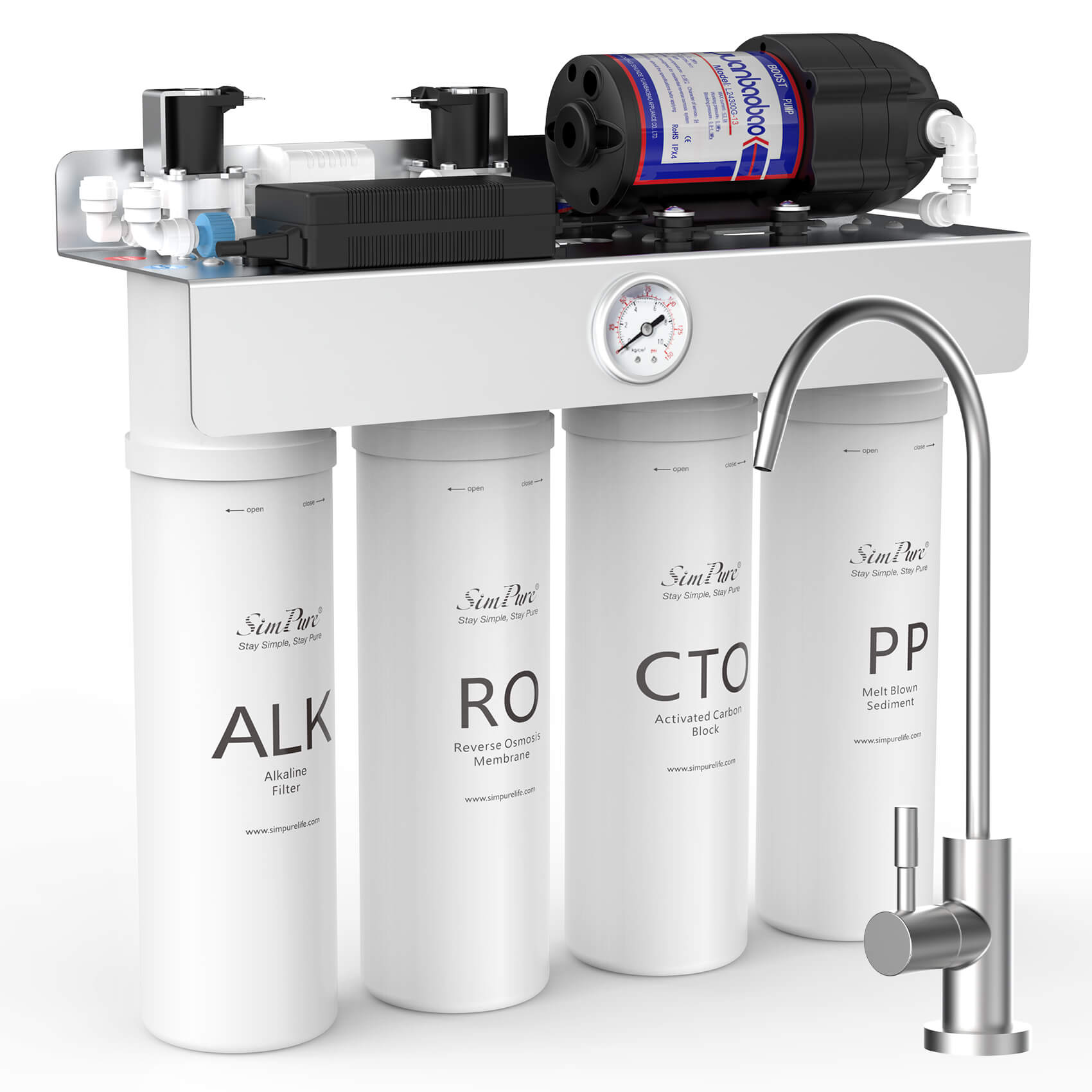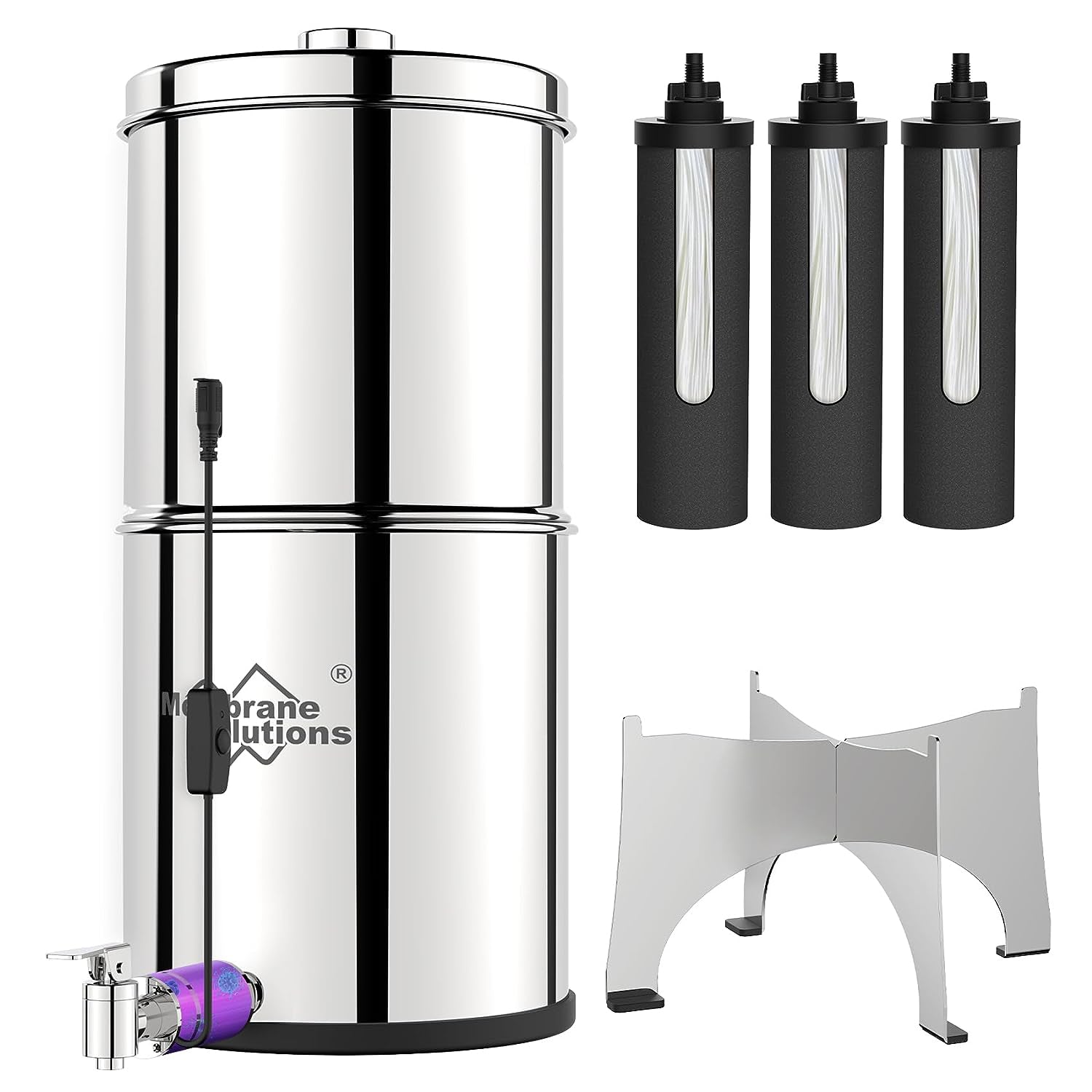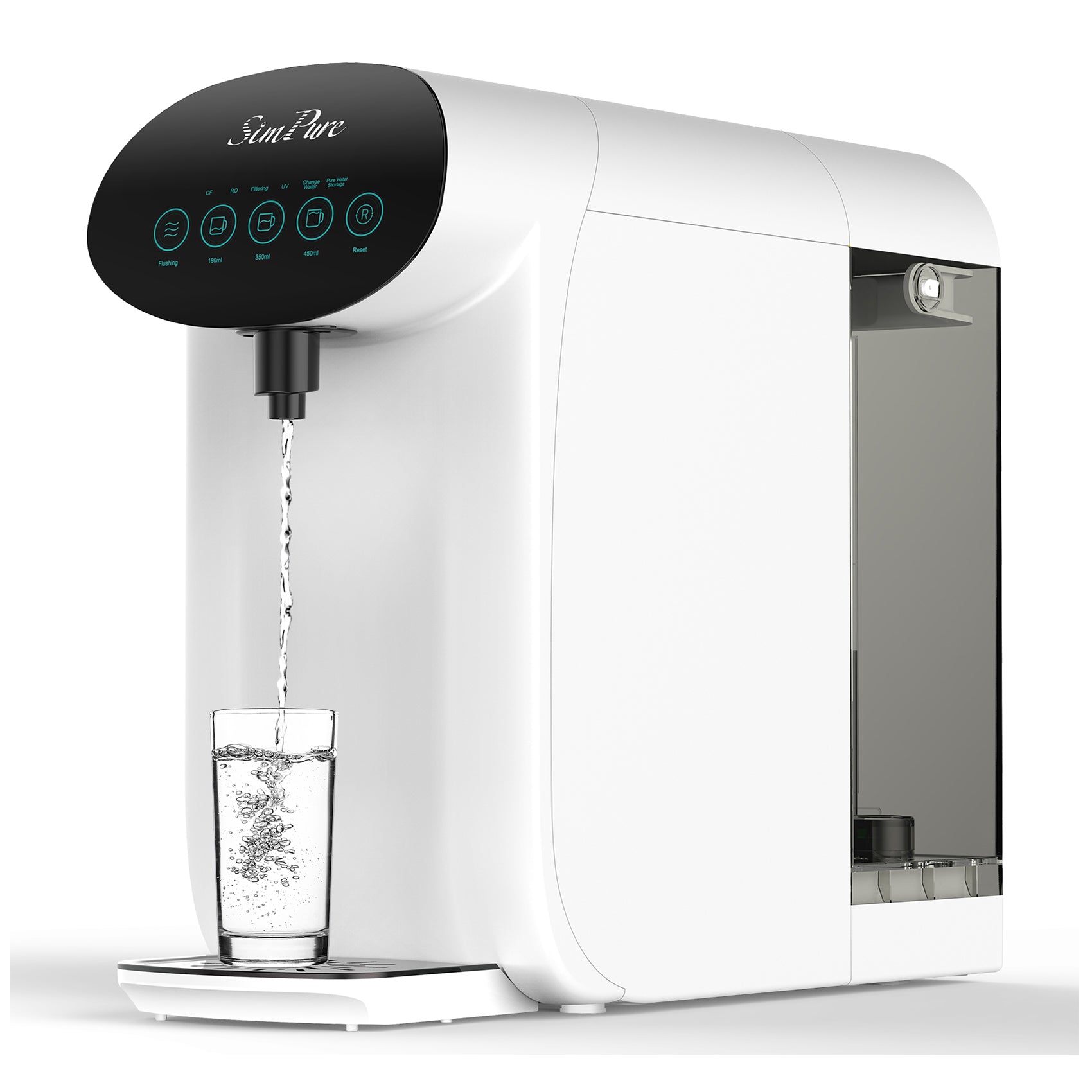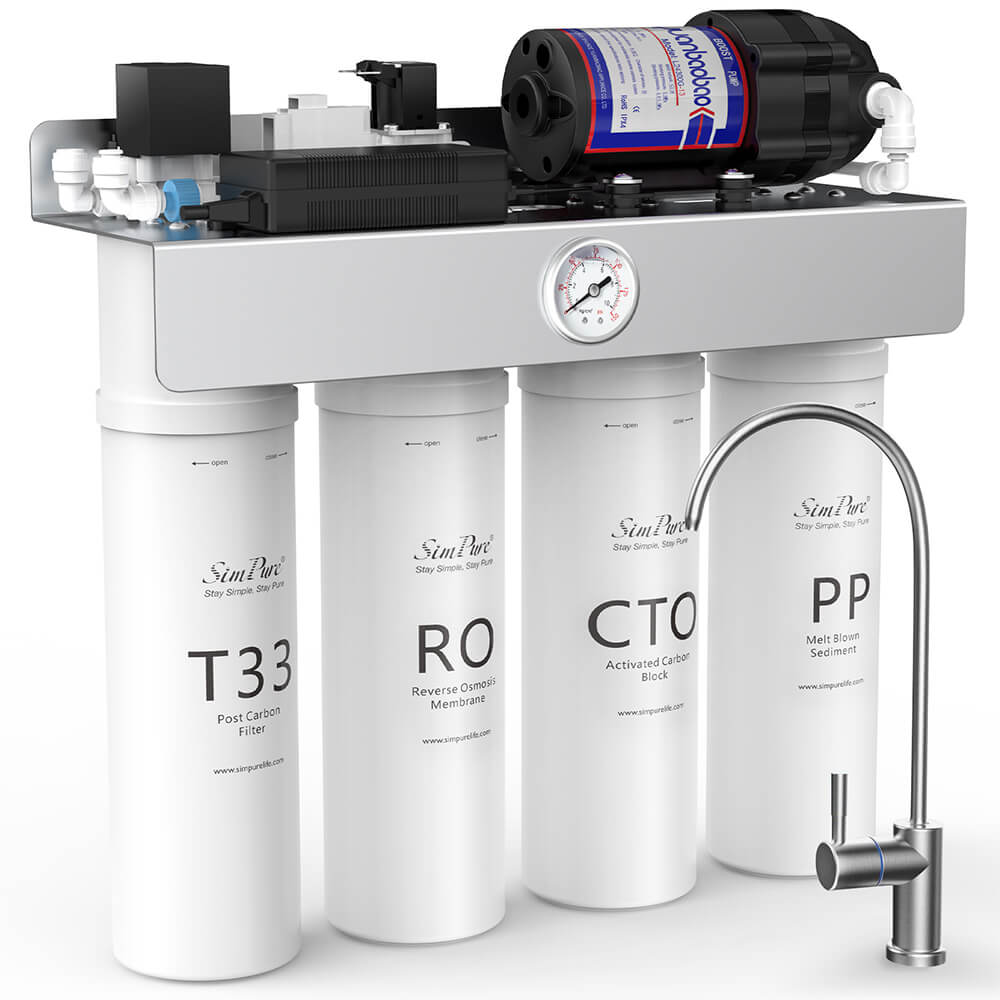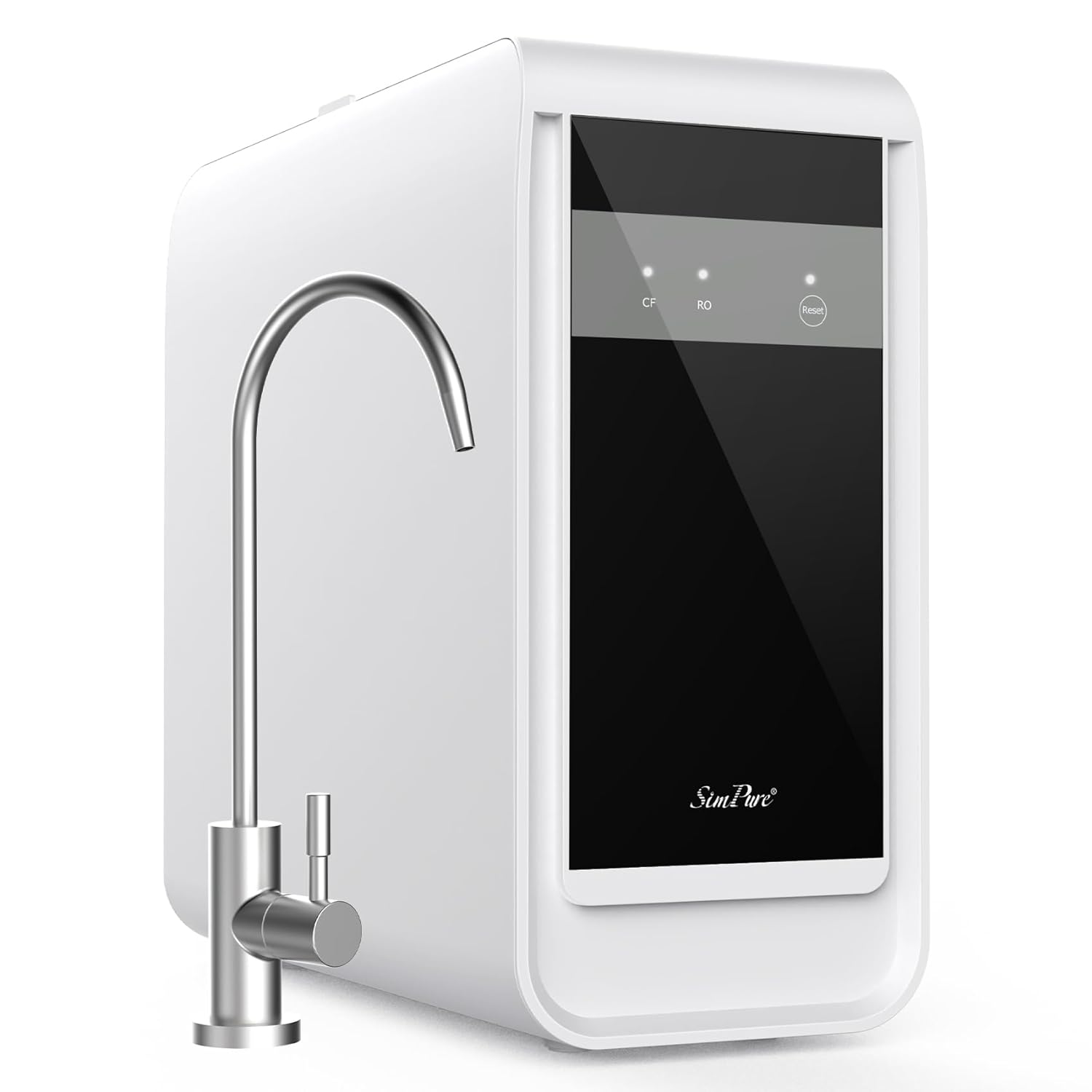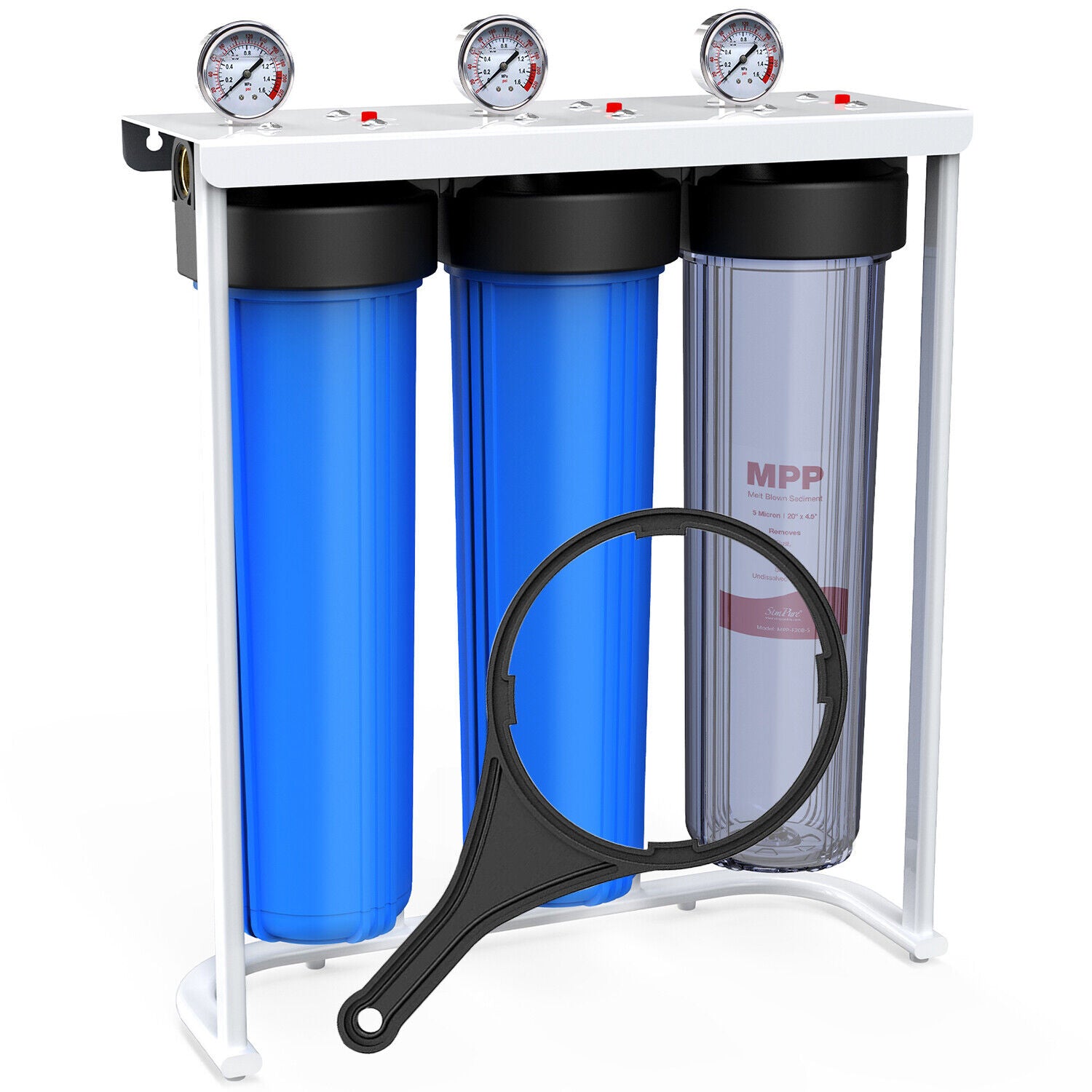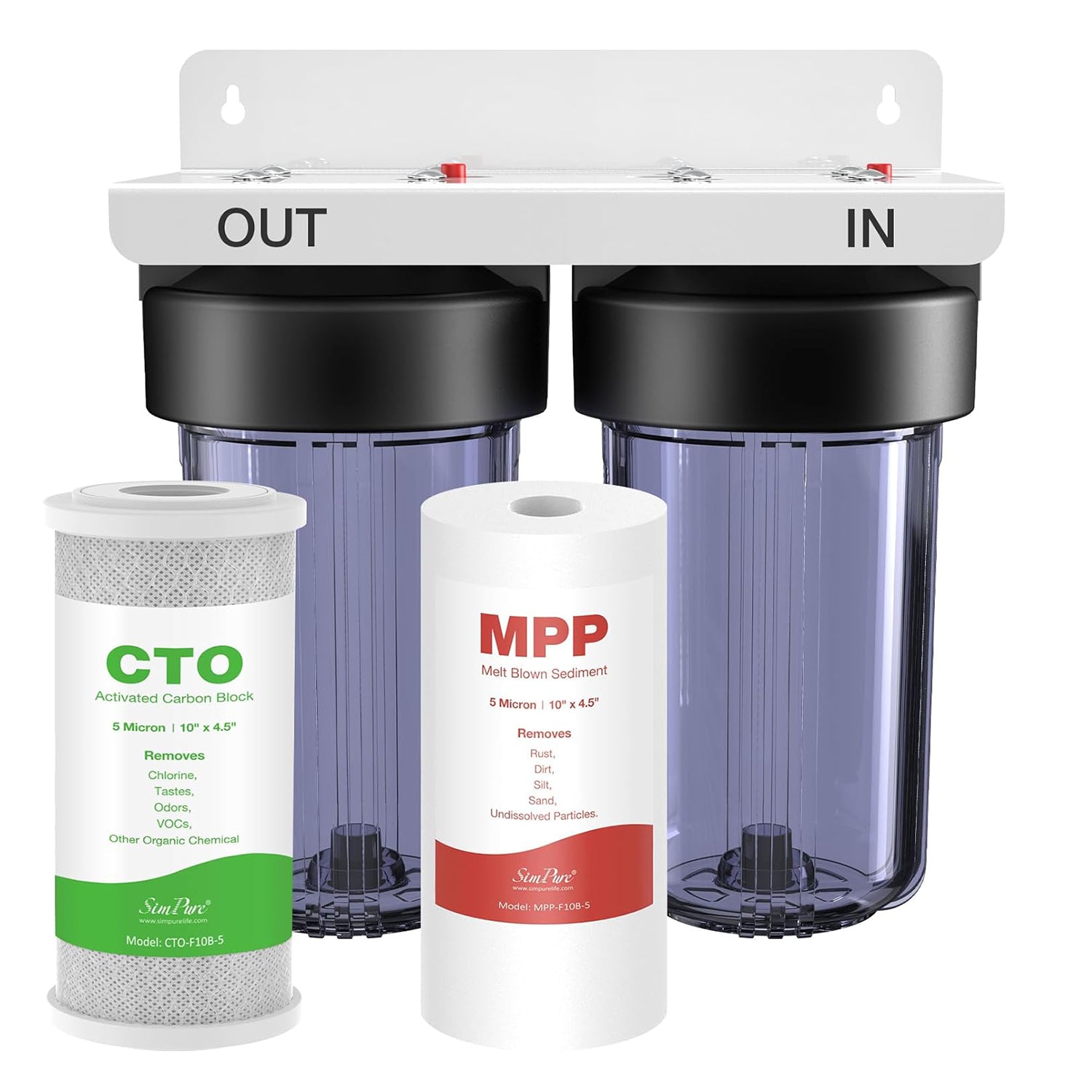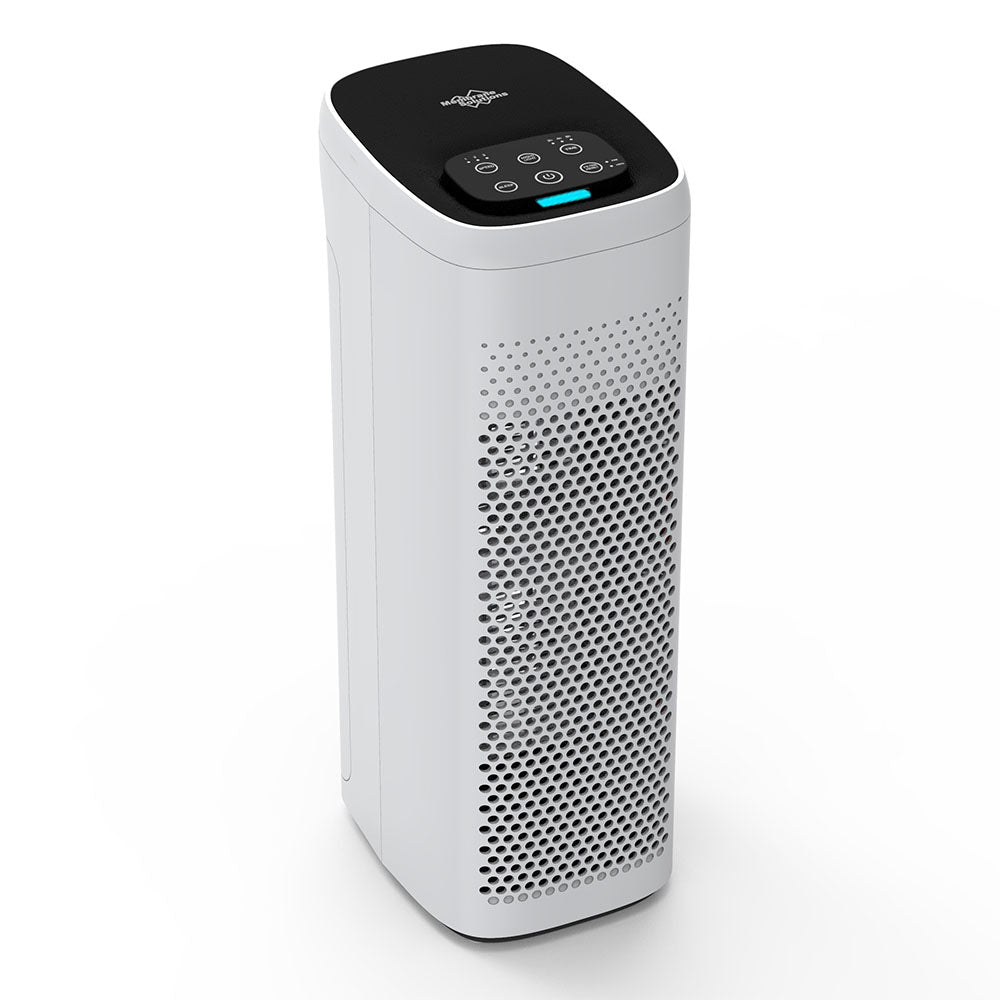Imagine finding out that the water you use to wash your hair could be the hidden culprit behind your ongoing battle with dandruff. Have you ever thought the question why do I have dandruff after I shower? That's right—hard water, known for its elevated levels of calcium and magnesium, might just be playing a key role in your scalp's health, or lack thereof. This article is designed to guide you through the doubt can hard water cause dandruff, explaining the connection between hard water and dandruff, unpacking the evidence and offering solutions. Let us explore the details!
Can Hard Water Cause Dandruff?- The Connection
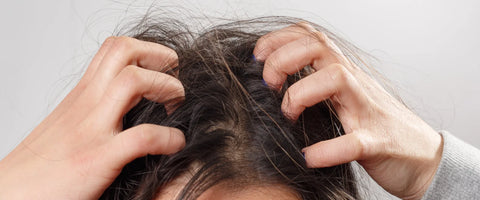
Yes, hard water can indeed contribute to the development of dandruff. Hard water is water that contains high levels of minerals, particularly calcium and magnesium. When you wash your hair in hard water, these minerals can accumulate on the scalp and hair strands. This accumulation makes it harder to rinse away shampoo and conditioner thoroughly.
As a result, residue left on the scalp can lead to irritation, dryness, and flakiness, all of which are symptoms associated with dandruff. Additionally, the mineral buildup from hard water can disrupt the natural pH balance of the scalp, further exacerbating dryness and irritation. This disruption makes the scalp more prone to flaking and itching, leading to the visible flakes that characterize dandruff. Thus, the interaction between hard water and your scalp's health is a significant factor to consider if you're struggling with dandruff. What's worse, there is also hard water causing acne problem. So, can hard water give you dandruff? of course, there are more skin problems than just dandruff like acne and more.
Signs Your Dandruff Might Be Linked to Hard Water
However, it's crucial to recognize that not all dandruff cases are caused by hard water. Various factors can contribute to dandruff, including skin conditions like seborrheic dermatitis, fungal infections, stress and hormones, or even just the products you use. To determine if your dandruff might be linked to hard water, it's important to look for specific signs and symptoms that differentiate it from other types of dandruff. If you have one of these signs, consider test your water for further judge and keep reading for the solutions.
- Excessive scalp dryness post-shower despite using moisturizing products.
- Flakes appear immediately after washing hair with hard water.
- Scalp or eyes become red, itchy and irritated after bath, especially after washing hair.
- Noticeable increase in dandruff when using hard water consistently.
- Hair feels like straw and lacks shine, due to mineral buildup.
- Scalp feels tight and uncomfortable after washing with hard water.
- Dandruff worsens when traveling to areas with harder water.
- Hard water leaves white residue on scalp and hair strands or stains on clothes after washing.
- Scalp becomes red and inflamed after exposure to hard water.
- Other family members experience similar scalp issues.
How Do You Treat Dandruff From Hard Water?
Once you've identified that your dandruff is caused by hard water, it's essential to explore effective treatment options. Here's how you can tackle this issue head-on.
1. Install a shower filter to reduce mineral content in water.
Installing a shower filter designed specifically for hard water is an effective method to treat dandruff caused by mineral buildup. Start by selecting a shower filter like SimPure 20-Stage best shower water filter for hard water, ensuring it can effectively reduce mineral content. Follow the manufacturer's instructions for installation, typically involving attaching the filter to your showerhead. With regular use, the filter will remove minerals from the water, reducing scalp irritation and dryness, thus helping alleviate dandruff symptoms caused by hard water.

2. Use a water softener to eliminate hard water minerals.
Using a water softener is an effective method to treat dandruff caused by hard water. A water softener works by removing the minerals responsible for water hardness, such as calcium and magnesium. To implement this method, you'll need to install a water softener system at your main water line. This system uses ion exchange or salt-based technology to replace hard minerals with sodium ions, resulting in softened water that is gentle on your scalp and helps alleviate dandruff.
3. Consider an under-sink RO system for whole-house water.
You can also consider an under-sink reverse osmosis system as a solution for treating dandruff caused by hard water throughout your entire household. This system works by passing water through a semipermeable membrane, effectively removing minerals and impurities responsible for scalp irritation and dandruff. Install the RO system under your kitchen sink to purify water at the source, ensuring that every tap in your home delivers softened, mineral-free water that is gentle on your scalp and hair. As expert in water filtration, SimPure recommends our SimPure T1 400 UV: Best Water Filter System for Hard Water.
With its special reverse osmosis membrane, our best water filter for hard water is capable of achieving a TDS removal rate of up to 95%+, making it one of the best water filters for removing calcium and magnesium. Additionally, with its high-precision water pressure gauge and 4 filters, this best RO water purifier for hard water is more efficient and longer-lasting than many other products on the market. If the TDS of your tap water is between 0-1000ppm, we highly recommend considering the SimPure best filter for hard water as an effective solution to your hard water issues.
4. Opt for clarifying shampoos to remove mineral buildup.
Clarifying shampoos are specifically formulated to remove buildup from products, minerals, and pollutants that regular shampoos might miss. When treating dandruff caused by hard water, opt for clarifying shampoos designed to dissolve mineral deposits. Follow these steps:
- Wet your hair thoroughly.
- Apply the clarifying shampoo, focusing on the scalp and areas prone to buildup.
- Massage gently to lather and ensure thorough coverage.
- Rinse thoroughly to remove all traces of shampoo and minerals.
- Use regularly to prevent mineral accumulation and maintain scalp health.
5. Apply scalp treatments with ingredients like tea tree oil.
Tea tree oil is a natural remedy known for its antimicrobial and anti-inflammatory properties, making it effective in treating dandruff caused by hard water. To apply this treatment, mix a few drops of tea tree oil with a carrier oil like coconut or olive oil. Massage the mixture onto your scalp, focusing on areas prone to dandruff. Leave it on for at least 30 minutes before washing your hair with a clarifying shampoo to remove mineral buildup.
6. Adjust washing frequency to prevent excessive dryness or oiliness.
Washing too frequently can strip your scalp of natural oils, leading to dryness and exacerbating dandruff. Conversely, washing too infrequently can allow mineral buildup from hard water to accumulate, worsening scalp irritation. Find a balance by washing your hair 2-3 times a week with lukewarm water. This helps maintain scalp moisture while preventing excessive dryness or oiliness, promoting a healthier scalp environment.
7. Consult a dermatologist for personalized treatment.
Consulting a dermatologist is crucial for personalized treatment and advice when dealing with dandruff caused by hard water. Dermatologists can conduct a thorough scalp examination to determine the extent of the dandruff and assess any underlying scalp conditions. Based on their diagnosis, they can recommend specific treatments such as medicated shampoos, scalp treatments, or oral medications. They can also provide tailored advice on hair care routines, products to use, and lifestyle changes to manage dandruff effectively and prevent future flare-ups.
Other Questions About Water Cause Dandruff
Here let's address some common queries to deepen your understanding and address any lingering uncertainties.
1. Does Soft Water Cause Dandruff?
Soft water typically doesn't cause dandruff. Unlike hard water, which contains high mineral levels, soft water is devoid of these minerals, making it gentler on the scalp. Soft water helps rinse off shampoo and conditioner effectively, reducing residue buildup that can irritate the scalp. However, if your water is extremely soft or lacks essential minerals altogether, it could lead to overly clean hair and potentially dry scalp, which might mimic dandruff symptoms.
2. Can Water Cause Dandruff?
Water itself doesn't cause dandruff, but the type of water you use can play a role. Hard water, rich in minerals like calcium and magnesium, can lead to scalp dryness and irritation, potentially contributing to dandruff. On the other hand, soft water, with fewer minerals, is less likely to cause these issues.
3. Does a Water Softener Help Dandruff?
Yes, a water softener can help alleviate dandruff by reducing the mineral content in water. Hard water, rich in minerals like calcium and magnesium, can irritate the scalp and contribute to dandruff. By using a water softener, these minerals are removed, making the water gentler on the scalp and hair. This can reduce dryness, itching, and flakiness, helping to improve overall scalp health and manage dandruff symptoms.
In conclusion, will hard water cause dandruff? Yes, hard water can indeed contribute to dandruff by causing scalp dryness and irritation due to mineral buildup. By installing water filters such as shower filters or RO systems based on your budget, you can mitigate the adverse effects of hard water on your scalp!


